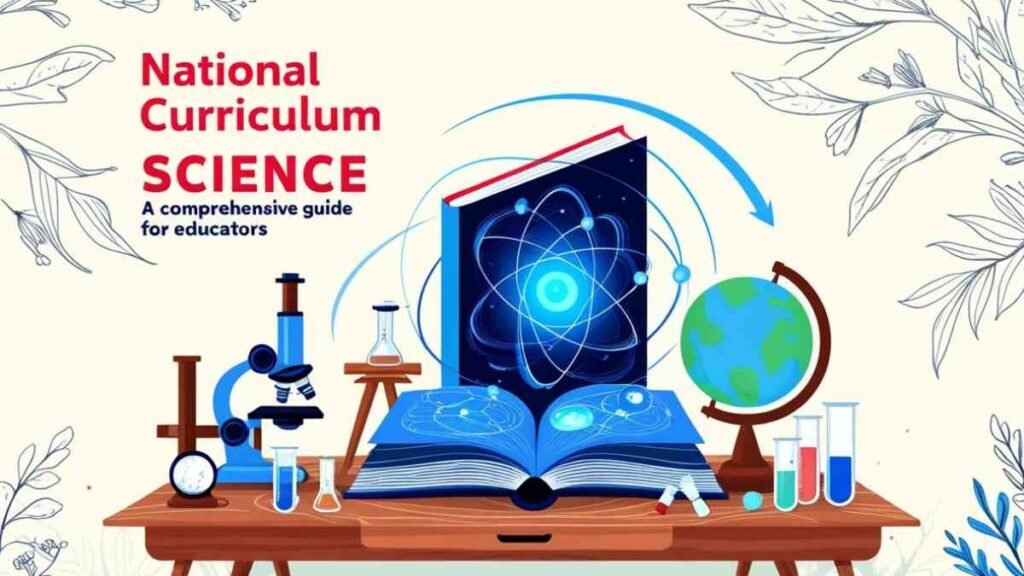Introduction
The National Curriculum Science is a cornerstone of modern education, aiming to equip students with the essential knowledge and skills needed to thrive in a world driven by science and technology. By fostering curiosity, inquiry, and a practical understanding of the natural world, the curriculum prepares learners for academic success and informed citizenship.
What Is the National Curriculum Science?
The National Curriculum Science is a structured educational framework that outlines what students in various age groups should learn about biology, chemistry, and physics. It provides teachers with a clear roadmap to deliver high-quality science education while allowing room for creativity and innovation in teaching methods.
Key Objectives of the National Curriculum Science
-
Developing Scientific Knowledge:
- Encourage a deep understanding of core concepts in biology, chemistry, and physics.
- Promote knowledge retention through systematic learning.
-
Fostering Scientific Inquiry:
- Teach students to formulate questions and hypotheses.
- Develop critical thinking skills by conducting experiments and analyzing results.
-
Real-World Application:
- Enable learners to understand the practical implications of scientific concepts.
- Equip students with the skills to address real-world challenges.
Structure of the National Curriculum Science
The curriculum is divided into four key stages, each designed to build progressively on previous knowledge:
Key Stage 1 (Ages 5-7):
- Introduction to basic scientific ideas such as plants, animals, materials, and seasonal changes.
- Activities focus on observation and exploration.
Key Stage 2 (Ages 7-11):
- Expands on topics like ecosystems, the human body, and physical processes.
- Encourages group experiments and data recording.
Key Stage 3 (Ages 11-14):
- Covers more advanced topics such as cells, chemical reactions, and energy.
- Prepares students for specialized study through theoretical and practical learning.
Key Stage 4 (Ages 14-16):
- Focuses on in-depth understanding for GCSE examinations.
- Offers options for combined science or separate sciences (biology, chemistry, and physics).
Benefits of the National Curriculum Science
-
Encourages Lifelong Learning:
- Instills curiosity and a love for learning.
- Prepares students for advanced education and careers in STEM fields.
-
Promotes Critical Thinking:
- Develops analytical skills through problem-solving activities.
- Encourages evidence-based reasoning.
-
Practical Skills Development:
- Provides hands-on experience with experiments and data analysis.
- Bridges the gap between theory and application.
-
Supports Holistic Growth:
- Enhances teamwork, communication, and collaboration skills.
- Encourages ethical considerations in scientific exploration.
Recent Trends in National Curriculum Science
Education is an evolving field, and science teaching is no exception. Recent trends focus on:
-
Incorporating Technology:
- Use of virtual labs and simulations to make complex topics accessible.
- Leveraging educational apps and tools for interactive learning.
-
Real-World Contexts:
- Teaching scientific principles through everyday phenomena, such as energy usage and environmental conservation.
- Emphasizing the relevance of science to daily life.
-
Interdisciplinary Learning:
- Blending science with subjects like mathematics and geography.
- Encouraging project-based learning to solve multidisciplinary problems.
Challenges and Opportunities in Implementation
While the National Curriculum Science has many advantages, implementing it effectively requires addressing several challenges:
-
Teacher Training:
- Ensuring educators have the resources and skills to deliver the curriculum.
- Providing ongoing professional development opportunities.
-
Resource Allocation:
- Equipping schools with necessary laboratory facilities and materials.
- Addressing disparities in resources across different regions.
-
Student Engagement:
- Adapting teaching methods to suit diverse learning styles.
- Encouraging participation through interactive and relatable content.
Despite these challenges, the curriculum offers significant opportunities to innovate and improve science education nationwide.
How Educators Can Enhance Learning Outcomes
-
Adopt Diverse Teaching Methods:
- Combine lectures with hands-on activities and group discussions.
- Utilize multimedia tools to explain complex concepts visually.
-
Encourage Inquiry-Based Learning:
- Allow students to design their experiments and draw conclusions.
- Foster a classroom environment where questions are welcomed.
-
Promote Collaboration:
- Organize group projects to build teamwork skills.
- Involve parents and the community in science-related events.
Conclusion
The National Curriculum Science is more than just a set of standards—it is a pathway to nurturing scientifically literate individuals who can contribute meaningfully to society. By emphasizing knowledge, inquiry, and practical skills, the curriculum lays a strong foundation for lifelong learning and innovation. With continuous efforts from educators, policymakers, and communities, the vision of creating a science-savvy generation can become a reality.
For More Visit, Mirrormagazine.co.uk


